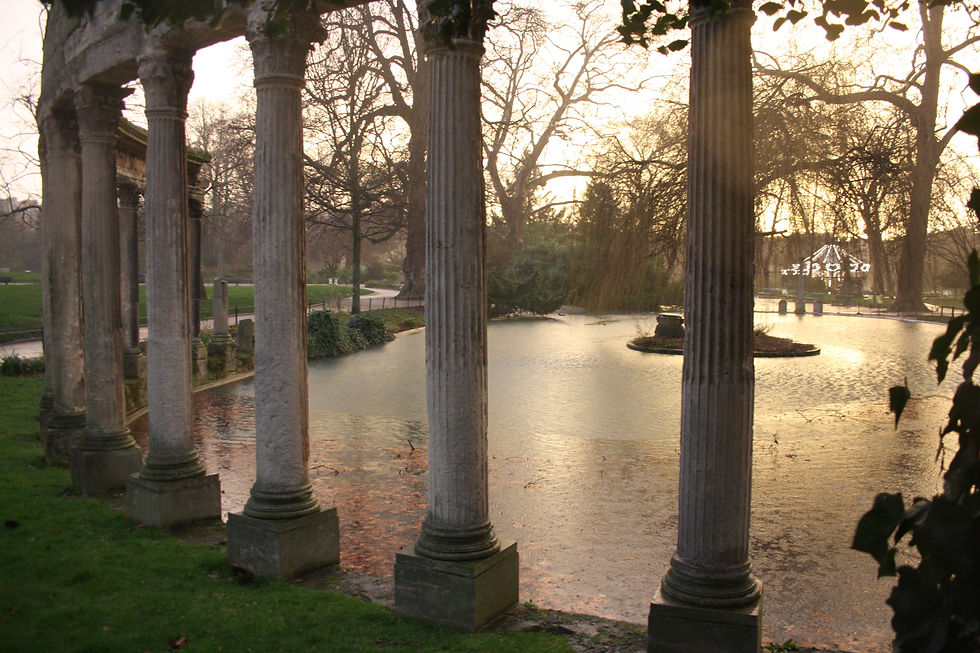The most romantic gardens in Paris?
- Carsten Sprotte

- Feb 18, 2018
- 2 min read

How can one possibly affirm that one Parisian jardin is more romantic than another when you have such incontestable choices as Luxembourg, Tuileries, the Palais-Royal, or the gardens of the Musée Rodin--that uncontested master of sensuality in stone? Still, if you happen to be in the parc Monceau as the suns sets on a February eve, and the rain begins to fall with every raindrop refracting a mellow evening glow, making the very air seem incandescent....then you will know. And if you happen to be watching the scene unfold over the water wreathed in Corinthian columns, the enchantment of ancient times will seize you, and in that moment the parc Monceau will become for you the most romantic of Parisian parks.
Or at least call it the most fanciful, designed in such a spirit by the painter Carmontelle and the architect Colignon, at the request of the Duke of Orléans following his marriage to the Princess of Pinthièvre in 1769. The garden was intended to give the illusion of a journey through the ages and the empires, which explains the odd presence of such eclectic pseudo-ruins as a pyramid, a gothic arch, and Corinthian columns. Confiscated during the Revolution, the park was permanently opened to the public in 1861, half it being sold off to rich bankers who developed and purchased the plush hôtels particuliers that now surround it.
In contrast to the vast rectangular Tuileries and the tourist-infested Jardin de Luxembourg (both eternally romantic in their own right), the parc Monceau is a smaller oval space with a more intimate and bourgeois feel. Here you will find just as many bench lovers as you will little children and lawyers in running attire. If the gardens have not satisfied your romantic appetite, the Musée de la Vie Romantique is only a stroll away, as is also the sumptuous tea room of the Musée Jacquemart-André.
These have all been some of my favorite things, among the many others described in my book entitled EXQUISITE: Facets of my France.



Comments